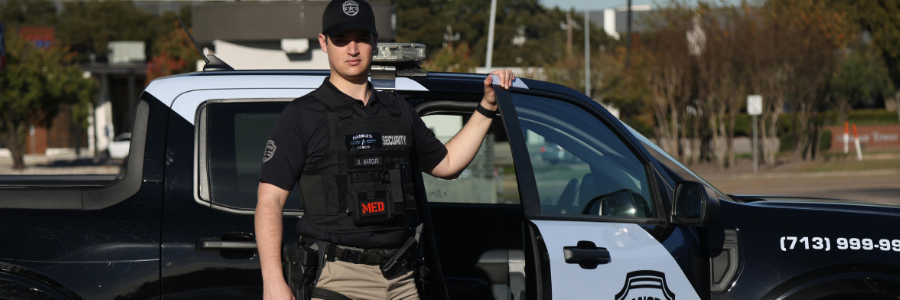Legal And Operational Hurdles In PSARA License Application
The Private Security Agencies Regulation Act (PSARA) 2005 was enacted to thoroughly scrutinize the registration and operations of security agencies in India. The act ensures that such agencies operate within legal oversight, curb the employment of any individual with criminal offenses, establish rules for proper training, and mention ideal physical attributes.
For PSARA Registration, applicants have to approach the Controlling Agency designated by the government in the respective jurisdiction. PSARA rules remains largely the same throughout different states in India. One major aspect on which significant variations can be seen is the police verification requirements as police forces are not under concurrent list but fall under the jurisdiction of state authorities.
People often encounter issues while registering for the PSARA license and in the post-registration phase. Some may find the application process complex, and face difficulties in documentation, police verification, and compliance fulfillment. Keep reading to get a detailed insight into the legal and operational one faces during the PSARA license application process.
What is PSARA License Registration in India?
According to the PSARA Act 2005, a private security agency is a person or a body (except a government agency) engaged in the business of offering security services. Apart from these services, such businesses also provide training to their supervisors and security guards and extend security services to other businesses, industrial undertakings, an individual, or property.
As per the law, no person can commence or carry on the private security agency business unless they hold a valid PSARA license. In most of the states in India, the license remains valid for 5 years after which renewal is required. In Chhattisgarh and Uttarakhand, the authorization remains legally valid for only one year. To renew the PSARA license, it is necessary to make an application 45 days before the expiry of the license. Failing to do so within the 45-day window can attract severe fines, penalties, and even legal repercussions.
PSARA License helps in Gaining a Competitive Edge in Security by enhancing credibility and legal compliance in private security agencies. In addition, the license demonstrates that security guards of the agency have undergone rigorous training and background checks which is necessary to uphold professionalism, maintain ethical conduct, and deliver high-quality security services.
What are the Key Legal Challenges in PSARA Application?
PSARA Registration is essential for private security agencies to adhere to the law and avoid severe penalties, fines, and legal action that will arise due to non-compliance. However, the licensing procedure comes with its own set of challenges, including legal hurdles. These hurdles are as follows:
- Non-Indian Citizenship: Under the PSARA Act 2005, no person can set up a private security agency in India if they do not hold valid citizenship of India. Thus, if the applicant is not an Indian citizen, he/she cannot obtain a PSARA license. In addition, only those companies will receive authorization who have the majority of Indian shareholders.
- Criminal Background: The application process of the PSARA license includes thorough background checks and police verification. It is done to ensure that no director or partner establishes a security business with severe criminal records. Criminal convicts are less likely to receive PSARA license. This stringent rule is put in place to uphold public safety and meet professional and ethical standard within the organization.
- Age Requirements: To establish a business that undertakes security services, an individual has to first create a company. For this, he/she must be at least 18 years old as per the Company Act 2013. Similarly, the age requirement for the person willing to be employed as a security guard must be between the ages of 18 to 65. The age restriction can hinder many from establishing or being deployed as guards and may become a reason behind the rejection of the PSARA license.
- Non-Compliance: Any private security agency who violates the provisions of commencement of operations, eligibility rules of private security guard, and exhibiting of license in a visible business place will be punished with a fine of a maximum INR 25,000 along with cancellation or suspension of the license.
Understanding the Costs of Maintaining a PSARA License, challenges, regulatory requirements, and other crucial aspects is essential to enhance operational efficiency of a private security agency and eliminate legal repercussions that may arise due to non-compliance.
Important Operational Hurdles in PSARA Registration
The PSARA Act 2005 lays down several guidelines to ensure that private security agencies function within the legal boundaries. For this, the agencies have to obtain licenses from the concerned authorities. However, an application can be rejected or delayed due to the following reasons:
- Inadequate Financial Resources: As a necessary condition, an individual or a company willing to operate a private security agency is required to have sufficient funds and financial resources to bear the business expenses and pay salaries to the personnel. To obtain the license, directors have to submit copies of their income tax returns to demonstrate they have ample funds required to operate the business. However, authorities may reject the application on the grounds of insufficient funding available to the applicant.
- Inadequate Training: Every private security agency is required to impart necessary skills and training to its security guards and supervisor. Further, training of licensee is also a mandatory condition under the PSARA law. If an agency fails to impart the required training, their application can be rejected and license can be cancelled or suspended by the authorities. Examine the Emerging Security Trends Post-PSARA Regulations to adopt effective training programs and increase operational efficiency.
- Delay in Police Verification: To obtain the PSARA license, applicants apply to the Controlling Authority. The authority sends a copy of the application and discloses information to the Deputy Commissioner of Police of the concerned police district. The police officer then verifies the background and records of the applicant. If the verification receives a green signal, the police officer furnishes an NOC (No Objection Certificate) specifying that the person has not indulged in activities that pose a risk to national security and is eligible to receive the license. However, the entire process can take substantial time as it requires extensive verification which especially becomes difficult if the applicant has lived in multiple states.
- Inaccurate or Incorrect Documentation: For successful PSARA Registration, it is mandatory to submit accurate and correct documentation along with the prescribed fees. An application can be rejected or license will be revoked for furnishing false, incomplete, or wrong documents. Thus, it is necessary that applicant provide clear, organized, correct, and legible documents in the application process.
- Poor Office Setup: Under the law, applicant agency is required to set-up registered office with suitable infrastructure to operate the business and training areas for its security guards. The Controlling authority by itself assess whether the infrastructure of business meet the minimum requirements. If an agency fails in this parameter, they will not be eligible to obtain the PSARA license and their application will be rejected.
How to Mitigate Hurdles in PSARA Registration?
To mitigate the legal and operational hurdles in PSARA registration, applicants can consider the following suggestions.
- PSARA Consultants: A consultant will assist in PSARA Registration and help navigate through the complex application process. These individuals, with their profound knowledge and experience, will ensure that applicants are providing all the necessary information in the prescribed manner. Such entities can also expedite the application process as they maintain liaison with the concerned authorities and address queries accurately and promptly.
- Thorough Eligibility and Background Checks: A thorough background and eligibility check is mandatory to obtain a PSARA license in India. Since the Controlling Authority also verifies the antecedents and background of potential security guards, it becomes necessary for agencies to check all porpsects including criminal history, identity, previous employment records, etc. This will assure the authority that the agency complies with the PSARA act and fulfill verification obligations.
- Set-up Proper Infrastructure: Proper infrastructure rule under the PSARA Act 2005 encompasses setting up of areas for training facilities, ample office space, and training curriculum. Proper infrastructure also encompasses the maintenance of a well-organized document management system which will help in storing and updating records and documents.
- Enhance Compliances: PSARA registration seeks all the documents that are necessary to verify whether the agency is eligible to obtain a PSARA license or not. By submitting the right, correct, and complete documents, applicants can eliminate the delays arising during the registration process. Similarly, applicants must comply with training requirements, adhere to labor laws, and hire personnel only after due diligence through verification antecedents and background checks. By ensuring compliance with all requirements envisioned under the PSARA Act, applicants can streamline their registration process, improve their operational efficiency, and mitigate legal risks.
Is PSARA License a Good Investment for Small Security Agencies? PSARA license is a legal framework which is considered a good investment for all types of security agencies, irrespective of their scale and size. The license helps in enhancing the credibility of the business along with creating better business opportunities and enhancing customer trust.
Conclusion
A PSARA license is issued under the PSARA Act 2005. Without PSARA license, an individual or a company cannot legally operate a private security agency in India. Before applying for the license, it is necessary to meet the eligibility norms specified under the law. The agency first must get their business registered as Private limited company, public company, LLP, partnership firm, or any other business structure.
The key personnel and security guards associated with the agency must have no criminal record. The agency has to apply for the license by submitting the required documents including office address proof, business incorporation proof, directors’ details, training program details, and police clearance certificate. Connect with Legal Raasta Private Limited to understand the entire PSARA Registration process and eliminate obstacles that arise along the way.










